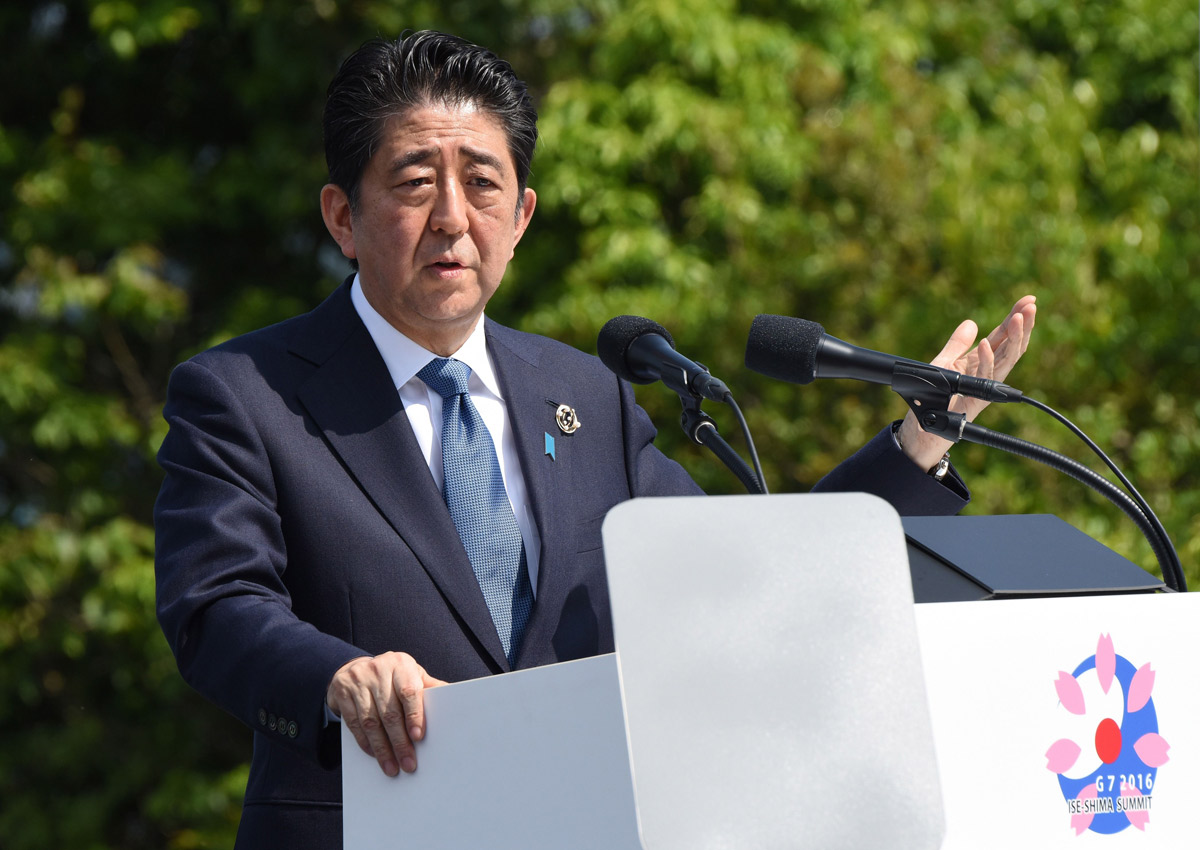TOKYO – Japanese Prime Minister Shinzo Abe said he would delay a sales tax hike scheduled for next April by two and a half years, a senior ruling party official said after a meeting with the premier on Monday. “The premier’s determination to postpone the tax increase seems to be very strong,” Masahiko Komura, vice president of the ruling Liberal Democratic Party, told reporters.
Komura’s comments confirm what sources had told Reuters on Sunday as Abe looks to avoid dealing a hammer blow to a fragile economic recovery, with the announcement on the tax decision expected ahead of an upper house election expected in July.
But Finance Minister Taro Aso has voiced opposition, saying that Abe should dissolve the lower house of parliament and call a snap election if he were to postpone the tax hike.
Speculation persists that Abe may call a snap election for the lower house to seek a mandate for postponing the tax increase, after a rise in his support rates following the G7 summit and US President Barack Obama’s historic visit to Hiroshima, site of the world’s first atomic bombing, on Friday.
A survey by the Nikkei business daily published on Monday showed Abe’s support rose three points to 56 per cent, while a Kyodo news agency poll showed a 7 point rise to 55.3 per cent.
But Toshiro Nikai, another senior LDP official who met Abe on Monday, said the premier did not appear to have any plan to call a snap election for the time being.
Expectations the government will delay the tax hike helped push Japan’s Nikkei stock index up 0.9 per cent.
CONSUMPTION REMAINS WEAK
Abe is meeting senior LDP and coalition party officials on Monday to gain consent for his plan to delay the tax increase.
He is expected to formally announce the tax hike delay by the end of the current session of parliament on Wednesday, government officials have told Reuters.
The prime minister is also expected to order an extra budget to boost stimulus measures, just two months into the fiscal year and on the heels of a supplementary budget to fund rebuilding efforts after the recent earthquakes in southern Japan.
Consumption has yet to recover after Japan fell into recession when Abe raised the sales tax to 8 per cent from 5 per cent in April 2014 in an effort to curb government debt.
Data released on Monday showed retail sales fell in April for the second consecutive month, bolstering the argument that next year’s tax hike should be postponed.
Fiscal hawks like Aso have said the tax hike is critical to rein in Japan’s huge public debt and cover ballooning social welfare costs of its fast-ageing population.
Abe has long said he would proceed with a plan to raise the tax rate to 10 per cent next April unless Japan faced a crisis on the magnitude of the Lehman shock.























